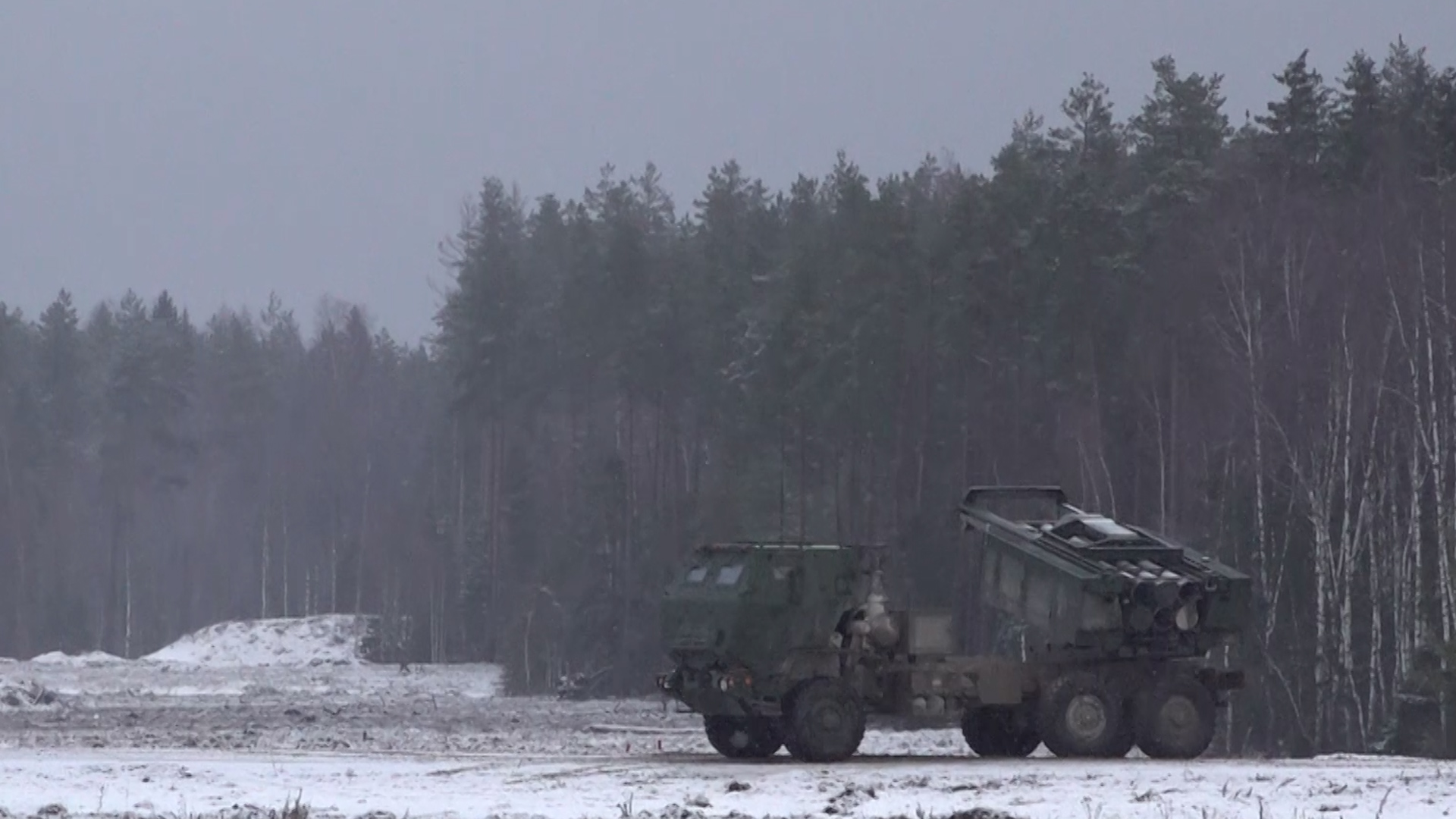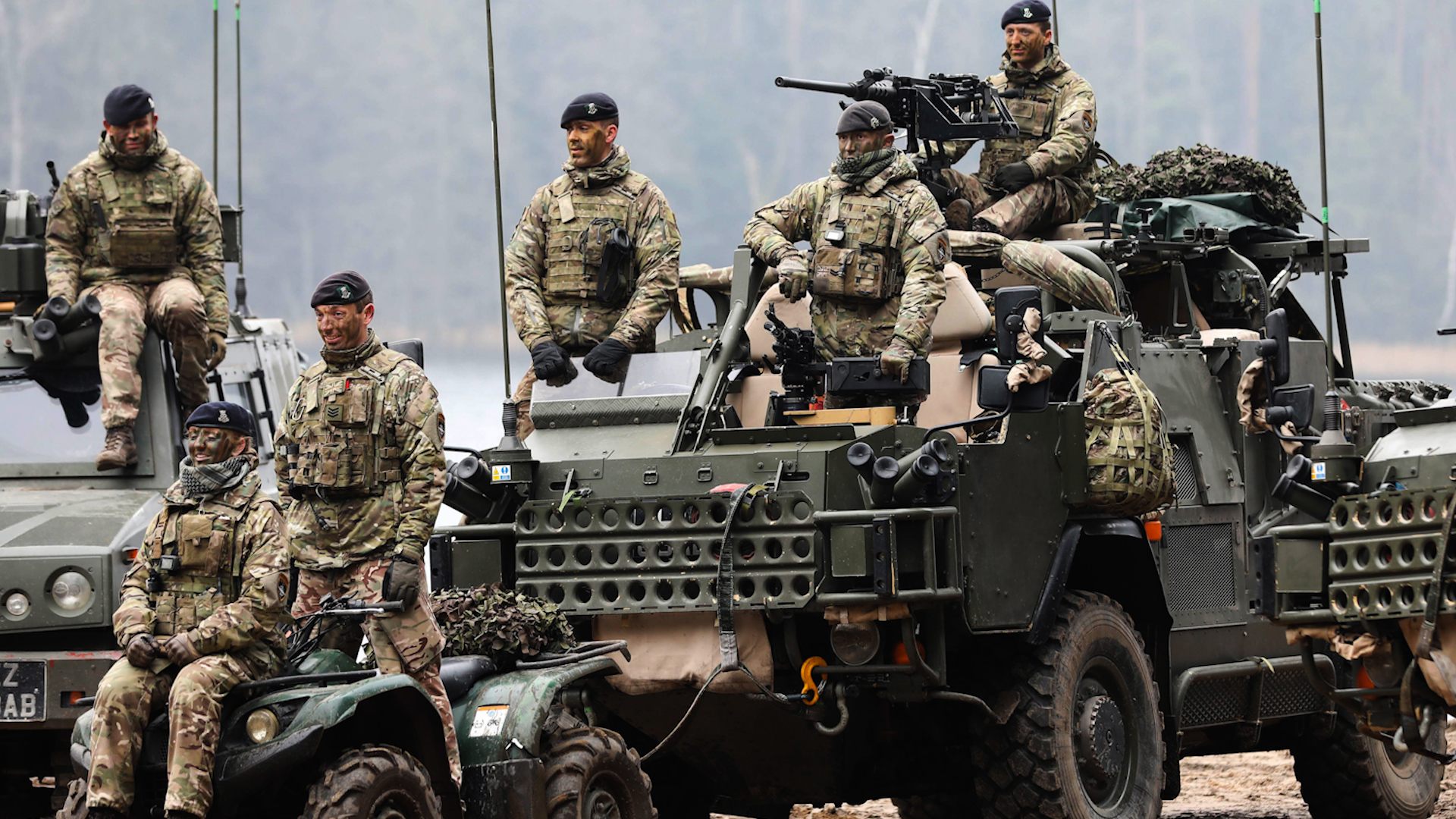
Four European nations to quit landmine treaty over fears of threat from Russia

Four nations have announced they have recommended their countries pull out of the anti-landmine agreement, commonly known as the Ottawa Treaty.
The defence ministers from Estonia, Latvia, Lithuania and Poland said in a letter posted on X the "military threats to Nato member states bordering Russia and Belarus have significantly increased".
It continued: "In light of this unstable security environment marked by Russia's aggression and its ongoing threat to the Euro-Atlantic community, it is essential to evaluate all measures to strengthen our deterrence and defence capabilities.
"We believe that in the current security environment, it is of paramount importance to provide our defence forces with flexibility and freedom of choice of potential use of new weapon systems and solutions to bolster the defence of the alliance's vulnerable eastern flank."
Their letter was signed by Estonia's defence minister Hanno Pevkur, Latvian defence minister Andris Spruds, Lithuania defence minister Doville Sakaliene, and Wladyslaw Kosiniak-Kamysz, Poland's minister for national defence and deputy prime minister.
The four ministers, all from countries close to Moscow and Minsk, cited the growing destabilisation in the eastern flank of the Nato alliance due to Russia's invasion of Ukraine in the statement.
"With this decision, we are sending a clear message: our countries are prepared and can use every necessary measure to defend our territory and freedom," the ministers wrote later in the statement.
Antti Hakkanen, Finland's defence minister, has also suggested that his country would think about withdrawing from the treaty, according to Politico.
The Ottawa Convention
The Convention on the Prohibition of the Use, Stockpiling, Production and Transfer of Anti-Personnel Mines and on their Destruction, which is more widely known as the Ottawa Treaty or Convention, prohibits the use of anti-personnel landmines.
The treaty came into force more than two decades ago in 1997, and 164 countries, including the UK, have ratified it.
Despite more than 150 countries signing the treaty, some notable countries have not yet signed, including China, the United States, India, Pakistan, and Russia.
The US position on anti-personnel landmines changes depending on who is in the White House – the Obama administration hinted that it could join the treaty.

Defence: a growing priority in Poland and Estonia
There is a rising militarisation in countries like Poland and Estonia driven by President Putin's war in Ukraine.
Poland's prime minister, Donald Tusk, unveiled a programme to offer voluntary military training from next year only last week.
The former president of the European Council said he aimed to train 100,000 volunteers.
"In 2027, we will achieve the ability to train 100,000 volunteers per year.
"Apart from the professional army and beyond the Territorial Defence Force, we must de facto build an army of reservists and our actions will serve this purpose," the 67-year-old said.
A British firm has struck a deal to supply the Polish Armed Forces with mine ploughs and combat dozer blades, which help tanks deal with landmines and other obstacles, to add to Poland's new M1A3 SEP V3 Abrams main battle tanks.
Meanwhile, Estonia's defence spending will rise to at least 5% of GDP from next year, Kristen Michal, its prime minister, said, sending a signal to Putin.
"Russia has not changed its goals and imperialistic ambitions. This is a real threat to both Europe and NATO," Mr Michal said as he announced his policy on X.
British troops are currently in Estonia and Poland as part of Operation Cabrit.
Landmines and their cost
Landmines are laid primarily as a military tactic to create defensive barriers, disrupt or channel enemy movements, and protect strategic areas, but they pose a persistent and lethal threat to civilians long after conflicts end.
Anti-personnel mines are designed to injure or kill people, often by pressure or proximity activation, while anti-tank mines are laid to damage or destroy tanks and other armoured vehicles.
According to the Center for European Policy Analysis, 40% of Ukrainian territory is now covered by landmines.









